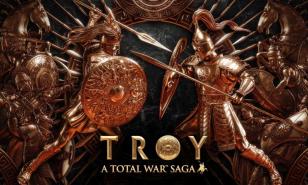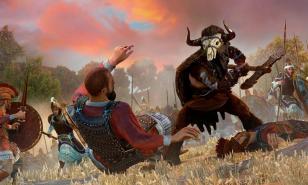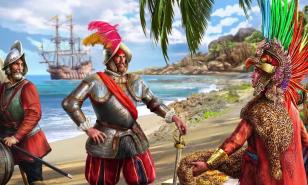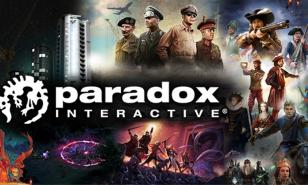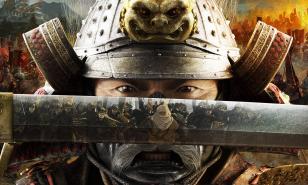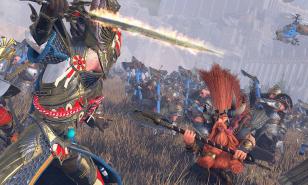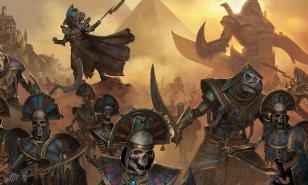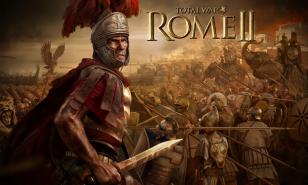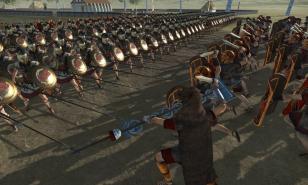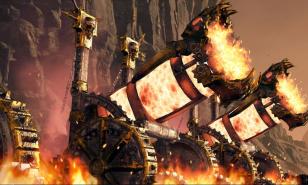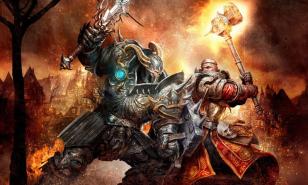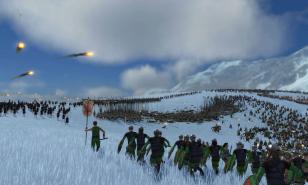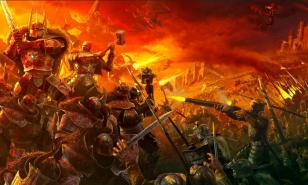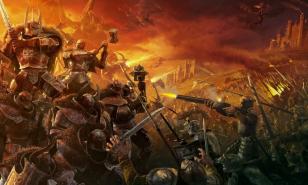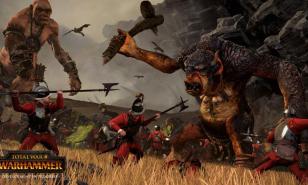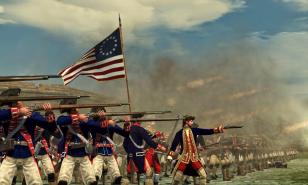[Top 10] Best Grand Strategy Games for Beginners (That Are Fun)
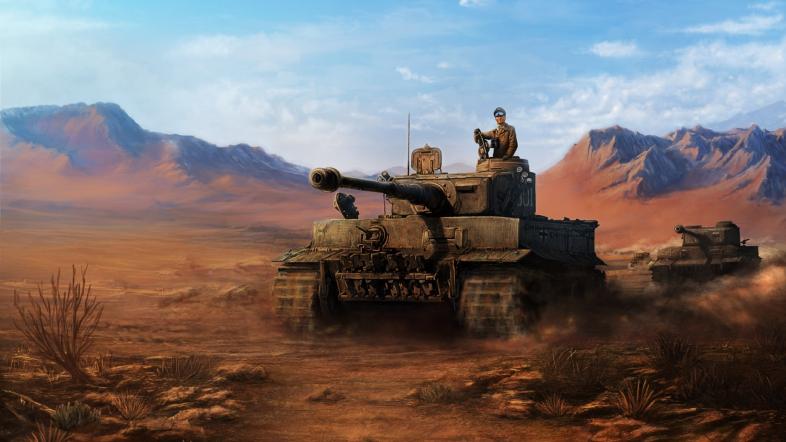
The Grand Strategy genre is another one of those video game genres that evolved out of tabletop games. They’re usually played on top-down perspectives where the main interface is a strategic map, sometimes with different overlays that give the player layers of information.
Paradox Interactive is generally recognized as one of the main popularisers of the genre, although games that could be described as such have existed, at the very least, since the famous 1985 title Balance of Power, which centered on the geopolitical struggle between the United States and the Soviet Union.
That’s usually a pretty serious topic, which you wouldn’t expect people to have fun with. However, Grand Strategy Games are usually beloved by History nerds and people with an interest in geopolitics and diplomacy. That doesn’t mean you have to be an academic to play these games, though, as they are first and foremost games intended to be an enjoyable and engaging experience.
Unlike 4X, Grand Strategy is more directly inspired by historical events. You’re more likely to take over areas than to found cities, and they usually have a layer of political, diplomatic, and even economical depth that makes them stand out from other genres. Other famous series, such as the Total War series, give a direct focus on battlefield command, being at the same time games based on strategy and tactics, a formula which has proven consistently popular.
As someone who has been an avid fan of the genre ever since 2004, when both Rome: Total War and Crusader Kings came out, I can safely say that I have almost two decades worth of experience as a player of the genre. In this top 10 list, I’m recommending both some of the best titles currently available and some that are easier to approach than most. So keep with me here, and I hope you’ll find something that will entertain you for as many hours as I have been entertained.
10. Realpolitiks II
First look at this great new Nation Sim
Realpolitiks is a 2021 title by Jujubee S.A. It stands out as a Grand Strategy game due to its focus on our contemporary era. The game starts in 2021 and focuses on future scenarios. This game is very simple mechanics-wise when compared to other Grand Strategy games, although the ugly UI may lead one to think otherwise. The UI is much improved when compared to the first Realpolitiks title, however.
The game offers a nice shot at representing the diplomatic, economic and political issues that we face today. It leans more into the nation simulator type of games like the Democracy series. However, the possibility for more aggressive and domineering action still leaves it squarely in the Grand Strategy field.
This game offers a lot of avenues of play, being one of the few games in the genre where a truly diplomatic approach can be a powerful way to play the game. The economic system is simplified when compared to other titles on the list, but this is probably for the better, as it makes it easier to understand and gives players the ability to quickly plan their playstyle.
For example, while other items on the list might have many types of buildings or structures available in a region, Realpolitiks II nudges you into specializing your territory by only allowing a single building in each larger region. The streamlined resource system with three resources also lends itself to this. The more abstracted economy makes this game lighter to play.
One of the best aspects of Realpolitiks is its modeling of internal politics. In most games, your political situation is a direct label. Some countries are democratic, others are dictatorships. In Realpolitiks II, the system is a bit more fluid. How you order your nation directly influences its political leaning, and after a given threshold, your nation starts changing noticeably. There is not one single moment when your political label changes, it is instead a more gradual process, which I think models the real world in a better fashion.
The political spectrum is pretty simplified, too, but it does a good job at generally modeling the political climate of our world. I’m sure there are a lot of people who will argue that this or that aspect of this or that group isn’t exactly represented but come on, this isn’t a fully-fledged politics simulator, rather, it’s a Grand Strategy game with a nice focus on politics.
This game hasn’t been out of Early Access for very long, and as such is still a bit buggy and unstable. I also cannot stress how much I dislike the UI and art style of this game. Something about it just feels weird and nauseous to me. But really, I can’t exactly pinpoint why, so I’ll chalk it up with some issue on my side, rather than the developer’s side.
This game is at the bottom of the list because it’s still unproven. However, there is still great potential for improvement in future updates. I think Realpolitiks 2 can become one of the leading titles of the genre if the devs put some effort into it.
9. Supreme Ruler Ultimate
USSR vs Germany WW2 PvP
Supreme Ruler Ultimate is BattleGoat Studios’ 2014 Grand Strategy title. Unlike most in the genre, it focuses on the 20th century and up. The game can start in 1936, 1949, or 2020 for widely differing experiences, a DLC with a 1914 start date is also available. Unlike Paradox titles, it also has no set end date, although you’ll probably become powerful enough to consider the game ended at some point.
Supreme Ruler is a bit of an oddball in the Grand Strategy world. It never reached the runaway popularity that other titles achieved, however, its small fan base is quite dedicated, and you can find a couple people that still play this game to this day and swear by it.
What I really like about Supreme Ruler is how far its economic system goes. There is a fully-fledged world market, but you’ll also spend a lot of time sending out trade offers for the nations around the world. Meaningful changes take time, but it feels really awesome when you can industrialize a poor nation. Any strategy game where you can do these things is interesting to me.
It’s not super realistic as far as economics go, but it’s close enough to merit being mentioned. Commerce, diplomacy, and economic power are key aspects of this game. Although it gets a bit annoying since some of its items, such as the “inflation” metric actually doesn’t refer to what we understand as inflation in real life, and instead refers more to a generalized growth rate of your economy.
This game also boasts a really cool military aspect. It's not as involved or complex as some of the other games on this list, but there is still a lot of depth put into it. I have to say I haven’t fully explored this aspect, since I prefer to play the economics game. But for anyone wanting some strategic action, this game surely won’t disappoint.
Sadly, great systems such as these are buried under a mound of menus and explained in manners so counterintuitive that this game would be very hard to learn were it not for the internet providing explanations. The game suffers from a very clunky and frankly ugly UI. I think this can be a lesson to developers on how you can build great systems and still put players off simply by presenting them with unwelcoming visuals.
I think that this lack of visual quality and ease of use were the main reasons why this game didn’t perform as well as others since mechanics-wise it’s very solid. But I still like it very much, and whilst I cannot recommend it on the top of the list, it still deserves to be on it.
8. Age of History II
The game everyone wanted
Age of History II is a title by Polish developer Łukasz Jakowski released on Steam in 2018. Originally a mobile game, this simplified Grand Strategy game is probably the best introduction to the genre. Riddled with problems but still simple enough to be enjoyable, I think that this flawed game is generally underrated.
There isn’t that much to say about this title. It’s got all the features you’d expect from turn-based Grand Strategy. Its main innovation is offering scenarios from several different periods in History, and also several different geographical regions. The different scenarios are really one of the most interesting features of the game, as its simple system allows the game to either be a World War 2 game, a Medieval game, or a Sengoku game. Simplicity allows it to be a lot of things at once, although it excels in none of those things. You can even download custom-made scenarios from other players to shake things up a bit.
The game is quite modular and easy to modify and learn. Its simple implementation allows you to pick it up quickly and have some fun with it. However, the simple system is also quite easy to exploit as a result. In addition, this game is far from polished, and there are some major bugs that you are bound to run into every single time. The game is not being actively developed anymore, so chances of those getting fixed are next to none.
The game has a functional economic and diplomatic system, although its military aspect is quite limited. I found myself enjoying this game a lot more than I expected. Although there isn’t much more to do except to increase sliders and click provinces to build structures. I’ll admit it’s a lot of fun to start as a poorer country and exponentially grow your economy through investment, eventually allowing you to snowball and become a world power. Sometimes, less is more when it comes to design.
The price tag is also excellent. This is probably the most accessible title price-wise in the whole Grand Strategy genre. I cannot imagine a better way to start, since this game costs less than a meal at a diner. Do be aware of its lack of polish, though. You’ll get what you pay for.
This game could be higher on the list if its developer had spent more time shaping it to be a high-quality product. A few bug fixes would already massively increase the quality of this game. I hope Mr. Jakowski uses the experience he gained from this title to make more polished products in the future, as this game shows promise. But as it stands, I cannot rate it higher, despite really wanting to.
7. Hegemony III: Clash of the Ancients
You MUST try this game!
Hegemony III is Longbow Games’ 2015 blend of RTS and Grand Strategy. Despite being set during the famous Classical Era, the game takes place hundreds of years before the famous city of Rome even became a superpower. It’s set in the Italic peninsula during the heyday of Etruscan and Greek power, and thus the major factions are not who you expect them to be. Rome is an upstart, and the big players are the Italiote poleis and the elusive Etruscan city-states.
Hegemony III offers a seamless transition between the campaign map and RTS battles. Despite the dated graphics, I find the art style of the game incredibly compelling, and I spent a lot of time just checking the map out when I played it. The faux-Ancient art style really lends credence to the feel of the game.
The setting is also of immense interest to me, as someone who is fascinated by Ancient History. Turning Magna Graecia into a united powerhouse is definitely something I enjoy doing. And whilst Rome may be the hardest faction to play in this game, fulfilling its historical destiny against all odds is immensely satisfying.
This game is well-paced and well-designed, and may I say, one of the hardest Grand Strategy titles out there. I honestly wish more games felt as challenging to play as the Hegemony series.
The campaign aspect of this game is simple but has an underlying depth that I find very unique and refreshing. I love the effort I can put into making my main city become a huge metropolis, even if the game’s objectives don’t explicitly center around this. Increasing your food supply to maximize growth is in itself a nice little minigame.
The tactical battles are nowhere as complex as the Total War genre, but they’re still ages ahead of the Paradox titles. Each faction has a different roster of units, which alters gameplay significantly since each faction specializes in different types of units. Those unit models are pleasant to look at and well animated as well. There is an interesting, albeit disturbing mechanic in which defeated enemies can be captured and turned into slaves. This actually fits right into the Ancient World theme of the game, it’s pretty close to how wars were waged in this period.
To me, this game only doesn’t rank higher because Longbow Games seem to have been abducted by some sort of UFO. It’s as if the company vanished in thin air in 2021. Its Twitter account is silent, its Steam pages are silent, and its company website is silent. It feels as if Longbow is some sort of zombie company by now. The lights are on, but nobody seems to be home.
This is honestly quite worrying, as Hegemony III had a DLC slated for 2021, in fact, it’s still slated for 2021 in Steam, more than a full year after its supposed release date, and yet there’s been no info ever since. I wonder whether this game has been fully abandoned, or if something direr has happened to the development team. As of now, it sadly seems the Hegemony series will not see any more updates or new titles. I just hope whoever is behind this game hasn’t actually vanished in thin air.
6. Europa Universalis IV
Is EUIV worth it in 2022?
Europa Universalis IV is one of the flagship titles by Paradox Interactive. Released way back in 2013, this game has been receiving updates and DLC ever since. It remains amongst Paradox’s most popular titles, with a consistent player base.
Europa Universalis IV really offers a niche where few games can compete. It focuses on the Modern Era, from the end of the Middle Ages up until Napoleonic times. But you only choose the starting situation, after the first day, an entirely different world history will start developing.
EUIV’s long span together with its unmatchable depth has kept this game a favorite for me and most Paradox fans. So why isn’t this rated higher? Well, almost 10 years of constant development have changed this game a lot. Some updates have done more bad than good, and despite being one of Paradox’s most popular titles, at times it sat on very negative ratings on Steam.
Europa Universalis IV is a very solid game. You can drown yourself in the complexity, and when you come out on top, you’ll find myriad ways to play this game and forge your civilization in the 400 years span that the game offers. There are just too many options to talk about in these short lines. It’s enough to say that every nation in the game is playable, and most of the regions in the world are peppered by kingdoms, chiefdoms, and empires; all of which offer different perspectives and play styles. The game even models every day between the late 1400s to the early 19th century, you can literally start on any single day.
If I were to praise every good element of this game, I’d need an entire article. Europa Universalis IV is one of my favorite games ever. I’m pretty confident in saying it’s one of the best Grand Strategy games ever made.
So why isn’t it higher on the list? Well, there are a couple of reasons. First off is feature bloat. This game has it in spades. I’m thankful I bought this game on release, I’m not sure I’d be able to pick it up today if it weren’t for my long experience with it. There are so many buttons and dials and gauges and menus and modifiers that you might as well think you’re in the control room of some steampunk airship.
There are modifiers, and then there are modifiers of modifiers, and then modifiers of modifiers of modifiers. Even after all these years, I still find myself occasionally wondering what the hell is going on. The ingame tooltips can be cryptic at times. And don’t get me started on the Monarch Points system, just see how well Imperator: Rome turned out by focusing on it.
The second issue is that the multitude of DLC has put this game in a situation similar to The Sims 4. The full game, if purchased outside sales, costs about 400 dollars. This has led me to be extra picky about what DLC I purchase. I have to say I don’t even have most of them based on price alone.
The game’s age is also starting to show, I think. Newer Paradox titles go to greater lengths to explain themselves. Crusader Kings 3 has a nested tooltip system that would massively improve this game. I can only hope they announce Europa Universalis V after they’re done with Victoria 3.
Paradox is not some outlier or villain, though. The cost of making games has risen a lot, and DLC and other monetization options are everywhere in the industry nowadays. Creative Assembly has even worse price tags on their games. I don’t think companies need to bankrupt themselves over pricing, but I think that perhaps there should be a progressive policy of price discounts in older DLCs to allow newcomers to at least match older players content-wise.
Despite being one of my all-time favorites, the string of bad DLC that Europa Universalis IV has received lately has put me off playing it. I rank it on the lower half of the list because it’s perhaps on the tail end of its service life.
5. Field of Glory: Empires
7 Major Features of Field of Glory: Empires
Field of Glory: Empires has a bit of a weird story. The 2019 title by Slitherine was a collaborative effort between many of the teams that are published by the company. Its development team, Ageod, was once part of Paradox, after being acquired in 2009. By 2012, however, Ageod, Slitherine, and Matrix Games had consolidated into a single company with different development teams.
Slitherine has a long history in the Wargame genre. Nobody makes better Wargames than they do. But their games are usually incredibly niche and not very popular. They lacked a game with more massive appeal to compete with Paradox in the Grand Strategy genre. The result of that is their 2019 title Field of Glory: Empires.
Field of Glory: Empires is weird for being a fully-fledged Grand Strategy game that has full compatibility with Field of Glory II, which was developed by another team. Putting their expertise together, the many teams of Slitherine managed to create an experience with strategic and tactical depth that is only surpassed by the Total War series.
The Grand Strategy genre has become increasingly dominated by Paradox and Creative Assembly in the last few years. And don’t take me wrong, I am a big fan of both, but much like the dominance of the Civilization series in the 4X genre, I think some of the underlying principles of design need to be challenged once in a while to keep things moving forward.
This is why I absolutely love this game. After playing countless hours of Paradox games, I craved something different and new. And this game surely does deliver it. Field of Glory: Empires is a completely different take on Grand Strategy when compared to Imperator: Rome and Europa Universalis.
This game is simpler and easier to learn, that much is true. It’s also turn-based, which might be a detriment to some, but I don’t really mind it. Despite superficial similarities, you interact with your army and territories in a completely different manner than what we have come to expect from Grand Strategy.
Central to the game are the concepts of culture, decadence, and legacy. Capturing regions given as an objective increases legacy. Increasing culture also increases legacy. But the larger and older your empire is, the more decadence it generates. Even worse, when your main regions grow to be massive metropolises, the mounting unrest will mean that you have to build decadence-generating buildings to hold onto them.
Decadence, when rampant, will lead to your empire tearing itself apart, and legacy is how you win the game. But to gain legacy, you either must conquer or grow your cities. Both options increase decadence. This means the game puts you on a constant tug of war between increasing legacy and controlling decadence.
This may sound frustrating, but it’s incredibly enjoyable. It creates a lot of interesting choices that will push the game far beyond simple turtling or expansion. Can you take the decadence hit if you decide to expand? Can you outpace a growing empire’s legacy by staying in your lane? Sometimes, the legacy system forces you to be aggressive. Often the large empires will start ballooning and exponentially increase their legacy, so you have to strike at their objective regions in a desperate bid to push their governments into collapse.
Field of Glory: Empires is not a perfect game, however. Its trade mechanics are clunky, and its UI can be a bit confusing at times. Without Field of Glory II, the battles aren’t very interesting. But it’s still the most solid example of Grand Strategy outside the main companies of the genre. Given how hard it is to design one of these, I must commend Slitherine, Ageod, and Byzantine Games.
Its sequel, Field of Glory Kingdoms, is as high on my list for 2022 as Paradox’s Victoria 3. I believe this series has immense potential as the future of Grand Strategy. As of now, Field of Glory: Empires is a collection of fantastic ideas bound by an execution that’s a bit rough around the edges, so whilst I recommend this, it sits in the middle of the list.
4. Total War: Shogun 2
What made Shogun 2 so awesome?
I have been playing Total War ever since I’ve been using a computer. Although the original Medieval Total War had been released back in 2002, I only really got into the series in 2004 with Rome Total War. I have been playing this series ever since. I must have played them all, except for Three Kingdoms and the Saga series.
Whilst I don’t think Shogun 2 can be at the top of this list because it’s an older title and also is no longer the most popular Total War, I cannot in good conscience not rate it highly. To me, when talking about the non-fantasy titles, Shogun 2 is the peak of Total War.
Everything in this game screams good design to me. The unit rosters are similar enough to be identifiable, but each clan gives a different spin on them that radically alters how the game plays. The Realm Divide mechanic, whilst a constant source of controversy, is perhaps one of the best attempts to solve the late-game boredom that comes with most Grand Strategy games. The religion mechanics offer other ways to dramatically alter the whole flow of the game with the arrival of Christianity.
I still play Shogun 2. I’ve played it on and off for about a decade now. This game is part of my life. It’s kind of embarrassing but I’ll admit I suck at it. I always struggle immensely to finish campaigns.
The battle aspect of this game is probably the best one can get without fantasy elements. Most games suffer from one imbalance issue or the other, but I think Shogun 2 is a very well-balanced game, all things considered. You can win with any clan, provided you know what you’re doing. Even the most difficult starts like the Ikko-Ikki can be beaten by experienced players.
I’m not even a big fan of the Sengoku Jidai setting, but the gameplay of this game is so compelling that it drove me to read and inform myself further about it. This, to me, is one of the big pulls of historical games such as these. While there are obvious artistic licenses, the game itself drives you to learn more about an aspect of History.
Shogun 2 lacks the better visuals and fantastical mechanics of the more recent Total War games, but as a long-standing fan of the series, it earns its recommendation solidly.
3. Hearts of Iron IV
Defeating Germany in 1937
Hearts of Iron IV is the 2016 title by Paradox Interactive that blends Wargame and Grand Strategy. The Hearts of Iron series is one of the longest-running series that Paradox has developed, and its fourth installment is by far the most popular one.
As per Paradox Interactive’s usual policy, the game has been receiving constant updates in the form of DLC ever since its release, and right now, it’s at its best. Ever since the No Step Back DLC added some much-needed changes to the game, Hearts of Iron IV, to me, is the definitive World War II Grand Strategy game.
Hearts of Iron IV is much simpler to play than its predecessor. Although this might harm my Paradox-cred, I must admit that I never really got around the UI of Hearts of Iron III. Many older players still swear by it, but I have to say that the streamlining done to this title was exactly what got me into Hearts of Iron IV
HoI IV starts right around 1936 on the eve of the Spanish Civil War. For any History enthusiast, this is a very exciting period to relive through video games. The Second World War was perhaps the bloodiest and most terrifying conflict in which humanity has ever engaged, and besides the Americas, every part of the world saw some sort of military action as a result of it.
Everything in this game is geared up for the big conflict. The pace picks up slowly but surely until the 40s when all hell breaks loose. This game is overwhelmingly focused on war because it covers the most violent period of the 20th century. There is no getting around it. If you want a more peaceful game, this isn’t the setting you’re looking for.
To me, the biggest pull of Hearts of Iron IV is its big focus on alternate history and political themes. The focus tree system offers a simple, but robust way to shape the political and social climate of the nation you choose to play. More focus trees have been added with every major update, and the ones needing a bit of love (like Italy) are supposedly getting revamped in the next DLC.
What if Trotsky had beat Stalin? What if the Republicans had won in Spain? What if Hitler had been assassinated? What if the Nationalists had won in China? To me, those are all very interesting scenarios, and Hearts of Iron allows them to play out. Sometimes simultaneously, if you turn on fully random focus trees.
The standard game always progresses on more or less historical terms, with the Allies and the Axis facing off in a deadly battle, and sometimes a conflict between the Soviet Union and the United States playing out after the downfall of Germany.
But there is more. There is so much more. I mostly play in Spain, which is a bit weird given it’s considered a minor faction. But just joining either the Allies or the Soviet Comintern, and adding a second western front to face off against the Nazis is already enough to completely change the flow of the Second World War. I really enjoy these alternate history scenarios, and defeating the Spanish nationalists is never an easy task.
Despite giving you the option to fine-tune and micromanage your troops and also design your own tanks, ships, and airplanes (in the upcoming DLC), you don’t really need to engage these deeper systems in order to play, but you can optimize your playstyle and pull off some amazing moves if you do. My favorite challenges are beating Hitler as France after the re-militarization of Rheinland, surviving as Poland or Czechoslovakia, or trying to use minor countries like the Baltic republics to change the course of the war.
I rank this game highly because of my huge interest in the Second World War, but also because it’s genuinely fun to play and perhaps one of the easiest Paradox titles to approach. And I’m not even talking about mods. If you get The New Order, you’re basically getting a free alternate history game for free. I think this mod is one of the best things about Hearts of Iron IV.
If you love wargaming or WW2 History, then I think Hearts of Iron IV is the best compromise between excitement and approachability. There are both harder and easier titles, but Hearts of Iron IV sits in the perfect balance for me, and thus earns my recommendation.
2. Total War: Warhammer II
"Totally accurate" Faction Guide
Total War: Warhammer II is Creative Assembly’s second foray into the fantasy world of Warhammer. A fantasy setting had long been requested by fans of the series, and releasing these titles was probably the right move for Creative Assembly as a company because Warhammer II and III are both some of the most played and best-selling titles of the Total War series.
There is a bit of a controversy, as many of the fans of more historical Total War titles were displeased by the larger focus on hero characters and special powers, as it took away from the realistic tactical elements of the series. This focus on heroes persists even in titles such as Three Kingdoms and Troy.
However, from many other design perspectives, Warhammer II is an incredibly well-made and well-polished game. With several options added by the many DLC that this game has, there are a variety of factions and play styles to make this game shine.
One could say that the battles are more arcadey and gimmicky, but all things considered, the fantasy setting gives this game a potential for something whimsical and fun that I find a lot of people enjoy. This title brought many new fans to the series and helped to revitalize it.
The one big downside of this game is that its price tag can run very high. To me, the best part of this game is the Mortal Empires campaign, and despite the DLC being free, you need both Warhammer II and Warhammer I to play it, which in itself costs around 120 dollars. To unlock the full faction roster, you need the DLC for both games.
But it’s a breathtaking experience for fantasy fans, strategy fans, or long-time fans of the Warhammer universe. It’s greater in scope and ambition than any other Total War experience ever provided by Creative Assembly. Whilst I find the price tag steep, I have to admit that developing a game in such a scope is a massive investment for a company to make.
That aside, it’s undeniable how much fun this title is. If you go on youtube and search for it, you can find people using the craziest strategies to play this game. The addition of this fantasy element adds so much to the Total War formula. The whimsical fantasy, new ways to play, variety of factions, frankly, the whole scope of this game itself is its biggest pull factor for me. I just love seeing these big worlds that lend themselves to emergent narratives.
The reason why I’m not recommending Warhammer III is exactly because its version of the Mortal Empires campaign hasn’t been released yet, and thus the game frankly feels empty compared to the immense amount of things to do in the Mortal Empires campaign. As such, I think Warhammer III will eventually eclipse Warhammer II as the go-to Total War experience for fantasy fans, but it’s just not there yet.
In addition, you’ll probably need Warhammer II and I to play Immortal Empires, the upcoming version in Warhammer III that mashes all of it together, so you’re not wasting anything by buying this one now. I am holding off on Warhammer III until they release it. The games go on sale pretty often, so it’s definitely something to check out.
1. Crusader Kings III
The Wolof of Wall Street
Paradox Interactive’s 2020 hit is the much-awaited sequel to their 2012 title Crusader Kings 2. Its big innovation is joining a very impersonal genre, such as Grand Strategy with a character-focused, role-play perspective.
I’ll be honest here, being a player of tabletop RPGs, I think Crusader Kings III, despite being a Grand Strategy game, is truer to the spirit of RPG than most games that call themselves RPGs nowadays.
But don’t be dissuaded if you’re looking for a more history-inspired experience, this game won’t disappoint. I think its focus on character interaction actually adds to the immersion. The game does feature the Crusades as a major point of one of its starting scenarios, and the feel you’re personally taking place on them makes for far more compelling gameplay than some games where you interact with history through more abstract means.
I think the reason the old Creative Assembly title Medieval 2 still pulls players is because its character system is far more developed than in subsequent titles. The Crusader Kings series goes all-in on this. It makes strategy, plotting, and political scheming feel involved to a point where you almost find yourself thinking like a medieval person, which for a game that mostly plays on a map, is frankly pretty impressive.
The first time I played this game, I played as a lowly count in the Kingdom of France, and whilst plotting, scheming, and trying to increase my standing within the close-knit system of French nobility, I amassed a lot of military might. My character was a shrewd and intelligent individual that significantly increased the family’s wealth, but his firstborn wasn’t really the brightest candle in the cathedral.
What most players would do is to arrange some sort of fortunate accident to take him out of the inheritance, but my character’s old age coincided directly with the First Crusade. I sent my second son, the intelligent and military innovative one, on a campaign to Jerusalem as the leader of an army. An army I invested all the family’s money into.
His bright martial ability and the groundwork that I had set allowed him to muster a lot of soldiers to win many smaller battles around the main engagements and chase the fleeing enemies down. My son even managed to capture many castles due to the many siege engines that I paid dearly for. This built up, and amid political struggles within Muslim lands, I somehow, totally unexpectedly, was awarded the Kingdom of Jerusalem. I expected to make him a Duke or Count, but this was an incredible chance for this man who would never see his rightful place.
I immediately switched my player character to this new King of Jerusalem, and I raised the stakes. Just being a crusader wouldn’t be enough. This game allows you to found new religions, and I founded a new version of Christianity, based on esotericism and Gnosticism, using syncretic elements with Islam to allow peaceful life and easier conversion in these new lands.
My character was no longer just the King of Jerusalem, he was now the benefactor of the Church of the Revelation of the Holy Sepulchre, and my new goal was to mend the schism between not only Catholics and Orthodox believers, but also between Islam and Christianity.
This was quite unacceptable to the Pope. And not long after, my new heretical kingdom was beset by another Crusade. There was nothing to be done, try as I might, I could not hope to best them. And so I was defeated, and the heretical dreams of my character were crushed.
Despite losing, I still rank this as one of the best stories I’ve ever seen develop whilst playing video games. And it’s why I fully support the design choices that Paradox went with while making Crusader Kings III. It features a very streamlined interface, a lot cleaner and easier to get around than Crusader Kings II. In addition, the character art, now in full 3D, is incredibly helpful to immerse oneself in the story.
It’s this capacity to generate compelling stories that blend the empire-building of History with personal drama and strategic play that to me makes Crusader Kings III my top recommendation in the Grand Strategy genre.
You May Also Be Interested In:
- Log in or register to post comments
 Home
Home PC Game Trailers
PC Game Trailers News
News Menu
Menu













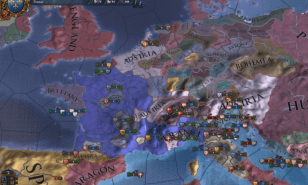
![[Top 15] Games Like Total War (Games Better Than Total War In Their Own Way) Warhammer 3 capture, a clash between chaos warriors and ogres.](https://www.gamersdecide.com/sites/default/files/styles/308x185-scale-crop--more-top-stories/public/games-like-total-war.jpg)
![[Top 15] Best Turn Based Strategy Games to Play Right Now Best Turn Based Strategy Games to Play Right Now](https://www.gamersdecide.com/sites/default/files/styles/308x185-scale-crop--more-top-stories/public/fifteentstategygames_titleimage.jpg)
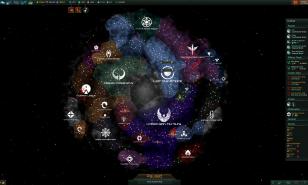

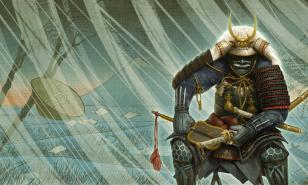
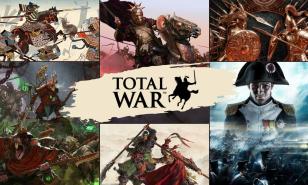
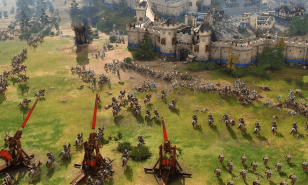

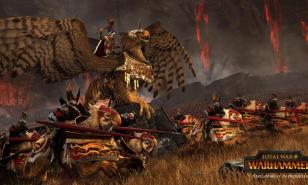
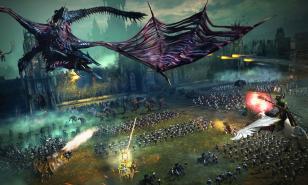
![[Top 10] Europa Universalis IV Best Starting Nations To Play Europa Universalis IV Best Starting Nations To Play](https://www.gamersdecide.com/sites/default/files/styles/308x185-scale-crop--more-top-stories/public/euiv.jpg)
